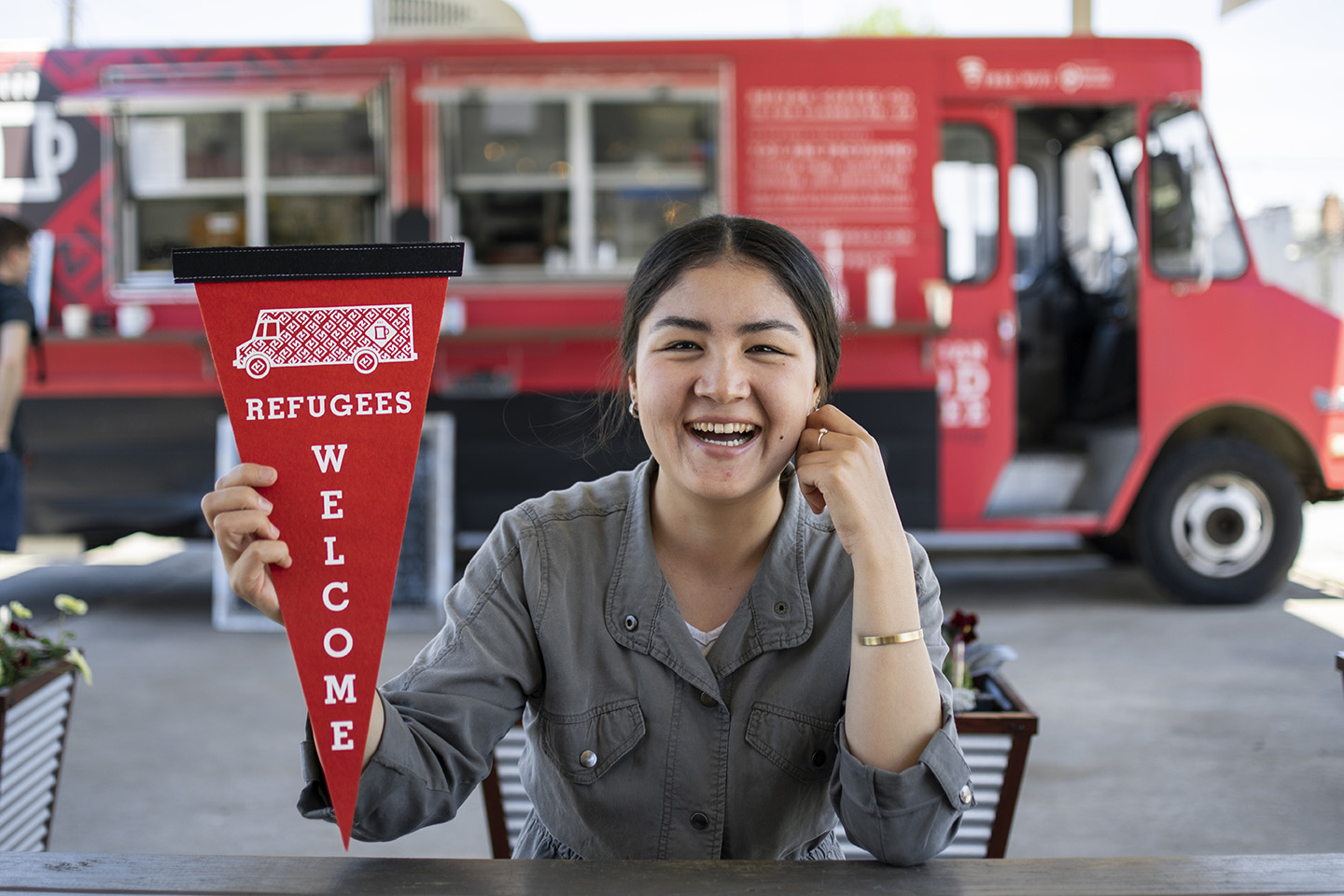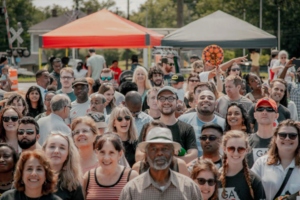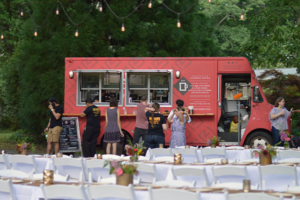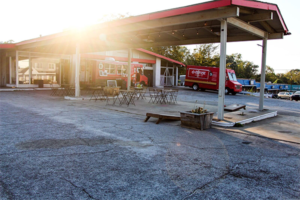
Somayyah shows me the mug she found in the gift shop at The King Center in downtown Atlanta:
“I have a dream that my four little children will one day live in a nation where they will not be judged by the color of their skin, but by the content of their character.” ~ Martin Luther King Jr.
Walt (our director of people development) recently took Ali, Andenet, Somayyah, and Ali on a field trip to share some of our darkest history with them. But the trip turned out to be more than a history lesson. Our nation’s track record of racial oppression is terribly familiar to each of our refugee trainees. They have each lived their own versions of it in their own countries.
The hope that we can build a “beloved community,” not only here in the U.S., but in Clarkston, is a hope everyone of us at Refuge Coffee shares.
Somayyah has spent her life at the intersection of “being judged” and “I have a dream.” This precarious position is a hard place to dwell. And, “if a threat justice anywhere is a threat to justice everywhere,” then our own history makes us more family with our refugee neighbors than strangers. Somayyah told me, “I loved everything about the King Memorial.” When I asked her why, I realized we would need more time for her to explain. So over the course of three days, Somayyah told me her story.
Somayyah was born in Iran after her parents fled their homeland, Afghanistan, during the war. No one in her family was a citizen of Iran. As refugees, they had no rights. They couldn’t own a home, a car, or even a motorcycle. The photographs of signs prohibiting black or brown people from U.S. restaurants, bathrooms or water fountains displayed at the King Center reminded her of home. She recalls hearing, “Hey Afghani” as a slur and “Why are you in my country?” asked by strangers on the streets.
Somayyah attended a “mixed” school, but most of the schools were separate. The prejudice against her people was obvious among her classmates and even her teachers, especially during geography class, where the teacher took every opportunity to point out that people from that country were the interlopers.
Return to Afghanistan: 11 years old
When Somayyah was eleven-years-old, her family moved back to Afghanistan. The war was over, but the devastation of war wasn’t over by a long shot. Their family home was falling apart and there was no running water and only intermittent electricity. They stayed in Afghanistan less than three months. During that time, every member of the family fell ill and spent time in a local hospital, including her baby sister. “It was a shock to my parents,” Somayyah says.
Return to Iran: 11 years old
The family returned to Iran, to a world that did not accept them, where they had to start their life all over. The losses they endured leaving and then returning took a toll on the family. They stayed eight long years. Turkey: 19 years old Eventually, they decided to take their chances and walk to Turkey along with strangers who agreed to make the dangerous journey with them. They carried everything they could on their backs and traveled only at night.
When the family got to Turkey, they immediately registered with the U.N. as refugees and set out to find jobs and a place to live. The first two weeks, they slept in an over-crowded park. It was winter and often rainy and they were hungry. But they had hope for a better future. Eventually, the U.N. sent them to a small city near Ankara. They slept in a bus terminal there until an Afghan family took them in and fed them. Their family shared one bedroom where they slept, ate, and tried to keep warm with a small coal-burning heater. Somayyah remembers that several people in their city died because they used the tricky coal heaters improperly.
Meanwhile, they waited for the U.N. to call. During their third year, they began hearing rumors that no one was accepting Afghanis. No one. In the world. The vague hope they’d held onto for so long evaporated.
And then—miraculously—they got the call for their first interview with the United Nations.
Somayyah’s family arrived at Hartsfield-Jackson International Airport in November of 2016. This is where you’d think the story lightens up. Where Somayyah’s entire family can exhale and embrace life again because they are finally safe and accepted. But that part didn’t come right away. Their first home was in a house on a quiet street near Clarkston. They were used to bustling cities, not houses with space and quiet and privacy between them. They did not know one single person on their street, nor did anyone speak their language. They were safe, but lonelier than they had ever been in their lives.
Somayyah is the oldest daughter in her family, and like many oldest children, she is the responsible one.
But for a refugee family, this mantel of responsibility is especially heavy. The learning curve is steep. Buying a car, learning to drive a car, finding a job, meeting friends. Somayyah quickly learned that the long hours at her minimum-wage pizza restaurant job would not help her family realize any of their dreams, let alone hers. Somayyah says she knew the job at Refuge was for her when we asked her what her dreams were during the interview. No one had ever asked her that question, and, if they had, it would have been a cruel joke. But she does have dreams. Dreams that exceed survival.
Somayyah wants an education. Learning has always been important to her and come at a steep price. She knows an education will open the door for other freedoms.
As always, we know Refuge is not the only path to Somayyah’s dreams. It is one leg in the journey, one we are confident Somayyah will make simply because of who she is, what she has endured with such grace, and where she is determined to go.
(Update: Somayyah completed her first semester at Georgia State recently with an impressive—but not surprising—4.0!)




